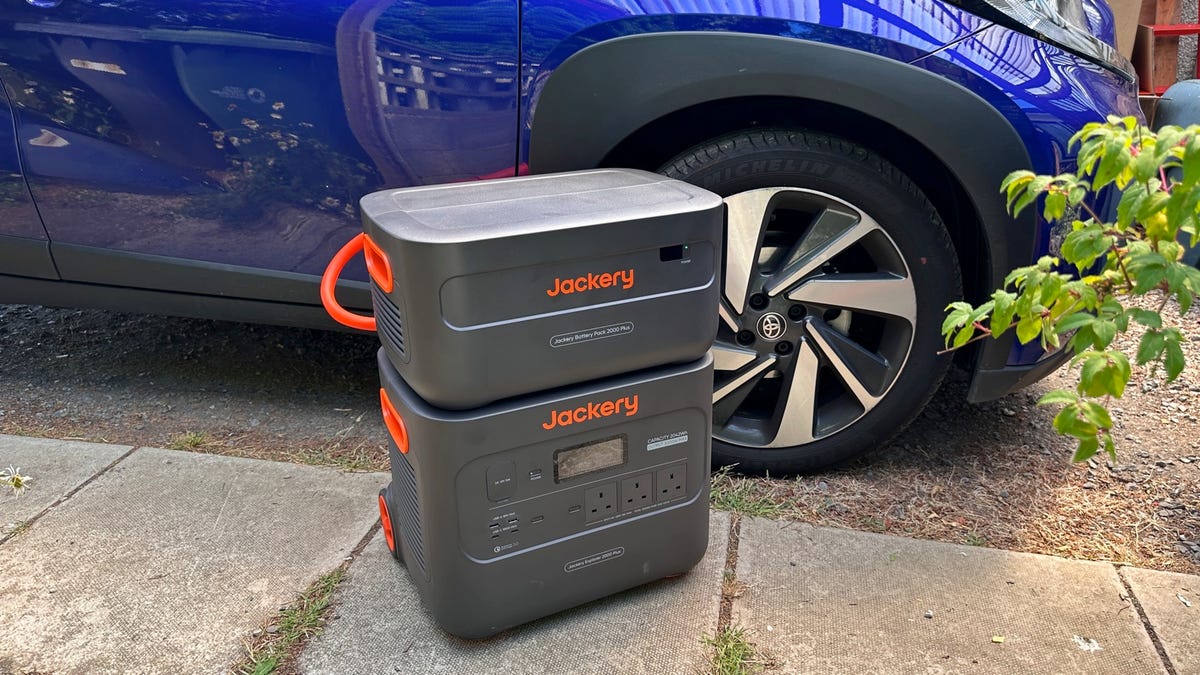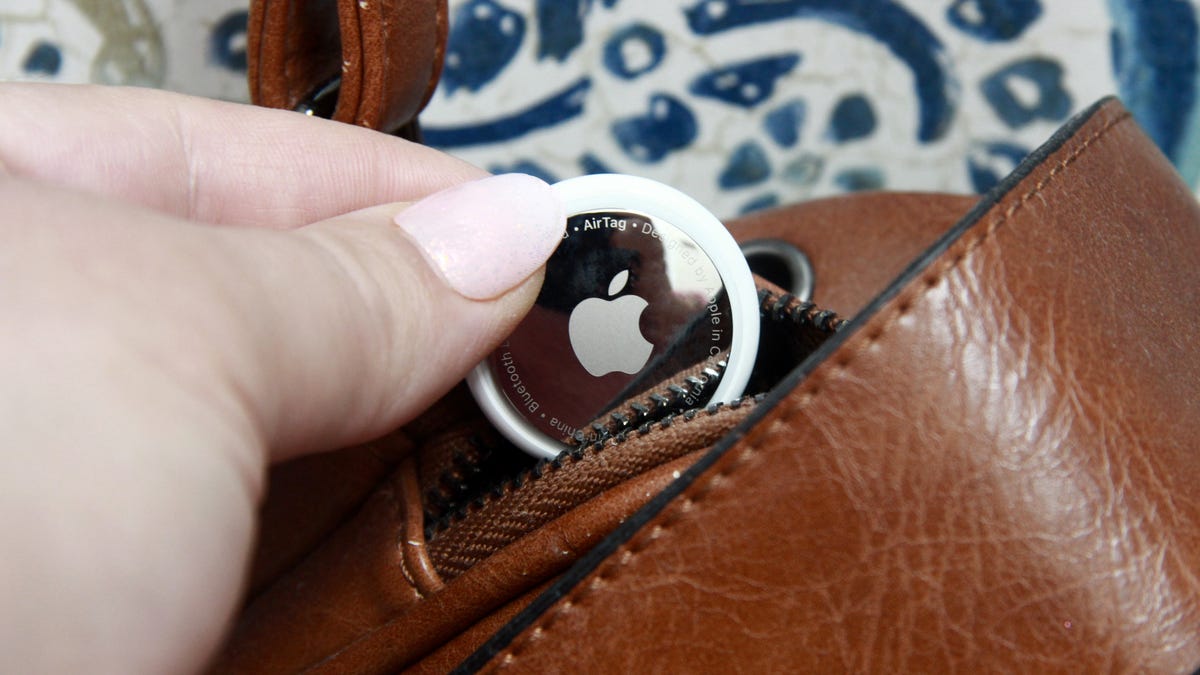This is Optimizer, a weekly newsletter sent every Friday from Verge senior reviewer Victoria Song that dissects and discusses the latest phones, smartwatches, apps, and other gizmos that swear they’re going to change your life. Optimizer arrives in our subscribers’ inboxes at 10AM ET. Opt in for Optimizer here.
Imagine you’re minding your business on a high-speed train hurtling at 186mph through northern Italy. You know you’re close to the end of a two-hour trip from Firenze Santa Maria Novella to Venezia Santa Lucia station, but the timer you set on your smartwatch has 25 minutes left. All of a sudden, your family is in a tizzy. We’re about to miss our stop! We have to get off now!
Amid the pandemonium, a lone Chinese grandma is pulling at your sweater sleeve, half-shouting questions in Mandarin as the overhead announcement blares the name of the station stop in Italian. Ahead of you, your mother-in-law keeps pushing the open-door button. The door won’t open. Your father-in-law and sister-in-law are stuck on the platform, gawping through the window as the train starts pulling out of the station. The Chinese grandma starts panicking for real.
The family is split. Half of us got off at the wrong stop — though it’s unclear which. None of us knows where we are or how long it is until the next stop.
So what do you do?
This is not a hypothetical. It’s how I spent my Saturday two weeks ago. It’s the exact sort of anxiety-inducing situation that makes people hesitant to explore countries where they don’t speak the language. When I moved alone to Tokyo in 2006, before modern smartphones, before Google Translate was remotely reliable, I cried countless times trying to do normal things like rent an apartment or order a pizza. My main resources were a 17-pound laptop and a Nintendo DS with a dictionary cartridge.
In 2025, I had no shortage of AI-powered, real-time translation gadgets and apps that promised to make a family vacation to Italy and Switzerland easy-peasy.
I downloaded the Google Translate and Apple Translate apps on my phone. I also packed two standalone AI translation devices: the Pocketalk and the TimeKettle T1. The Pocketalk and TimeKettle are handheld translators with cellular connections and cameras. They work well offline, can translate signs in photos, and free up your phone to do other things.
Surely, I thought, they’d be handy in a pinch.
I regret to inform you that AI translation gadgets were no match for my extroverted in-laws and their unshakeable belief that everyone in Europe speaks English. (In fairness, they were correct 95 percent of the time.) On countless occasions, my fearless mother-in-law had already marched up to someone in her Southern twang and gotten an answer before I could pull out my phone. Likewise, there’s hardly a point in whipping out a translation gadget when a bombastic Pompeii taxi driver is cracking jokes in English about three generations of his family’s business. AI was also useless for haggling over the fare when your father-in-law has already paid the taxi driver, shakin’ hands like they just cut a backroom deal.
The fundamental issue is that each of these devices requires time, patience, and ideally, a solid internet connection. You need to predownload language pairs to ensure offline capability. You have to have the wherewithal to gesture to a conversation partner what the device is, how it works, and pray that there are no time constraints. You have to hope the person you’ve asked for help is willing to humor you if the device or internet connection glitches. Most importantly, you can’t be too stressed.
We were running late for a train from Milan to Switzerland. My mother-in-law had all the tickets on her phone but had already walked through the turnstiles, leaving the rest of us behind. Panicked, she screenshotted three of the remaining four tickets and texted them to us. She was too flustered to send the fourth. Three of us rushed through. My spouse was left stranded on the other side. A confused station agent tried to help as my spouse repeatedly tried to scan an already-used ticket. My mother-in-law also tried to explain. Much shouting in Italian and English ensued.
I froze trying to think of which device would be most helpful. By the time I settled on Google Translate, my frazzled spouse bellowed a guttural, “FUUUUUUUUUUUUUUCK!!!!!!”
That required no translation. The Milanese gave us withering glares, huffing as they shoved past. The station agent threw up his hands and manually let the stupid American through.
At least we made it to the train.
Even when everything aligns, translation tech can still leave you a little lost.
Before a Pompeii tour, my sister-in-law bought a bottle of mineral water. Attempting to read the nutrition label, she asked if calcio was calories. Given it was mineral water and the amount was listed in milligrams, I guessed calcium. Nevertheless, I decided to test my entire translation arsenal. Both apps defined calcio as “soccer” — which is true but wrong in this context. Pocketalk’s camera function was correct, but by the time it finished, my mother-in-law had already asked the tour guide and loudly declared it meant calcium. There was no time to pull out the T1.
The Pocketalk and T1 were occasionally useful in translating menu items. You just take a photo, wait a minute or two, and boom — you get an image with English overlaid on top of the original Italian text. However, they weren’t much help if you tried translating an entire menu at once. The translation text would be cramped together in a tiny image. ChatGPT was a bit more useful, provided you were patient enough to wait. At a Swiss cafe, ChatGPT took three minutes to translate five pages of a drinks menu. It ignored all the coffee options, translating only the alcoholic beverages.
Here, too, swallowing your pride and asking the waiter is generally faster and easier.
Which brings me back to the train to Venezia Santa Lucia.
About 90 minutes before the chaos, after my family had settled into our seats but before the train embarked, the Chinese grandma next to my sister-in-law began poking her. After a few minutes, they poked me. The granny was attempting to use a Chinese translation app, but had assumed my sister-in-law was Italian. Nothing my sister-in-law said could convince her otherwise.
This was the perfect chance for the Pocketalk or T1 to shine. Except, I had expected to only need Italian and German on this trip. I hadn’t downloaded Chinese to either device, and the train’s Wi-Fi was spotty. Mid-download, both devices died because I’d forgotten to charge them the night before. Apple Translate also needed me to download Chinese. At last, Google Translate helped me tell this granny we were American, I didn’t speak Chinese, and to turn her app to English.
It was awkward. She’d whisper into her phone, wait a few seconds, and then hold it out for me to read. The AI translation was decent. It said she was afraid of missing her stop. She was going to Venezia Santa Lucia. Were we going to the same stop? If so, could she get off the train with us?
I spoke into my phone. We’re going to the same stop. I’ll let you know when it’s time to get off. I have no idea how good the translations were. I didn’t even know if I’d been correct in selecting simplified Mandarin over traditional. Nevertheless, she shook my hand and I took that to mean “thank you.”
An hour later, she tugged at my sleeve again and handed me her phone. The translation app said her phone was dying, did I have a battery pack she could borrow? I gave her a USB-C cable, but she froze. So I smiled, tapped her hand, and held out my palm. She gave me her phone. I plugged in the cord, pointed to the outlet, plugged it in, and gave her a thumbs up. The relief on her face was as universal as the way she clasped my hand and smiled.
As our train pulled out, our family split in half, common sense started to kick in. Venezia Santa Lucia was the last stop. None of the other passengers had gotten up when my family did. Our train had been delayed 20 minutes. Before the mayhem started, I vaguely remembered my father-in-law saying, “It’s 12:34!” Our original arrival time. The puzzle pieces fell into place.
I pulled up Google Maps. We were in Padua. I punched in public transit directions to Venezia Santa Lucia. We were two stops and 25 minutes away. It was easy to relay this to my spouse and mother-in-law. In the group chat, I told our stranded family that the next train was in 15 minutes. Afterward, I took granny’s hand, ushered her back to our seats, plugged in her phone, and pulled out my phone. She looked nervous until she read my translated account of what happened. We shared a laugh.
Now that I’m back home, I’d say an international high-speed data plan for my phone was the most useful piece of tech on my trip. Even so, it was comforting to have these gadgets as an emergency backup. I’d find them even more comforting as a solo traveler, living abroad short-term, or if I needed to go to a hospital or a police station.
On this trip, the only time that I felt AI translations saved the day was on that chaotic train ride to Venice. And not to help myself or my family. That I achieved with common sense and the internet. Instead, translation tech helped me soothe a stranger who was afraid. It’s not much, but I’m grateful nevertheless.
Even so, no AI translator can help me put into words the real reason why I helped her. All I can say is that granny looked like my mom. If she were alone and afraid in Italy, I’d want a stranger to help her, too. Before we parted ways on the platform, I wanted to tell her I hoped her stay in Venice would be everything she ever dreamed of.
I settled for an exaggerated smile, an enthusiastic wave, and letting her steal my USB-C cable.
Photography by Victoria Song / The Verge
Follow topics and authors from this story to see more like this in your personalized homepage feed and to receive email updates.

 4 weeks ago
15
4 weeks ago
15












 English (US) ·
English (US) ·